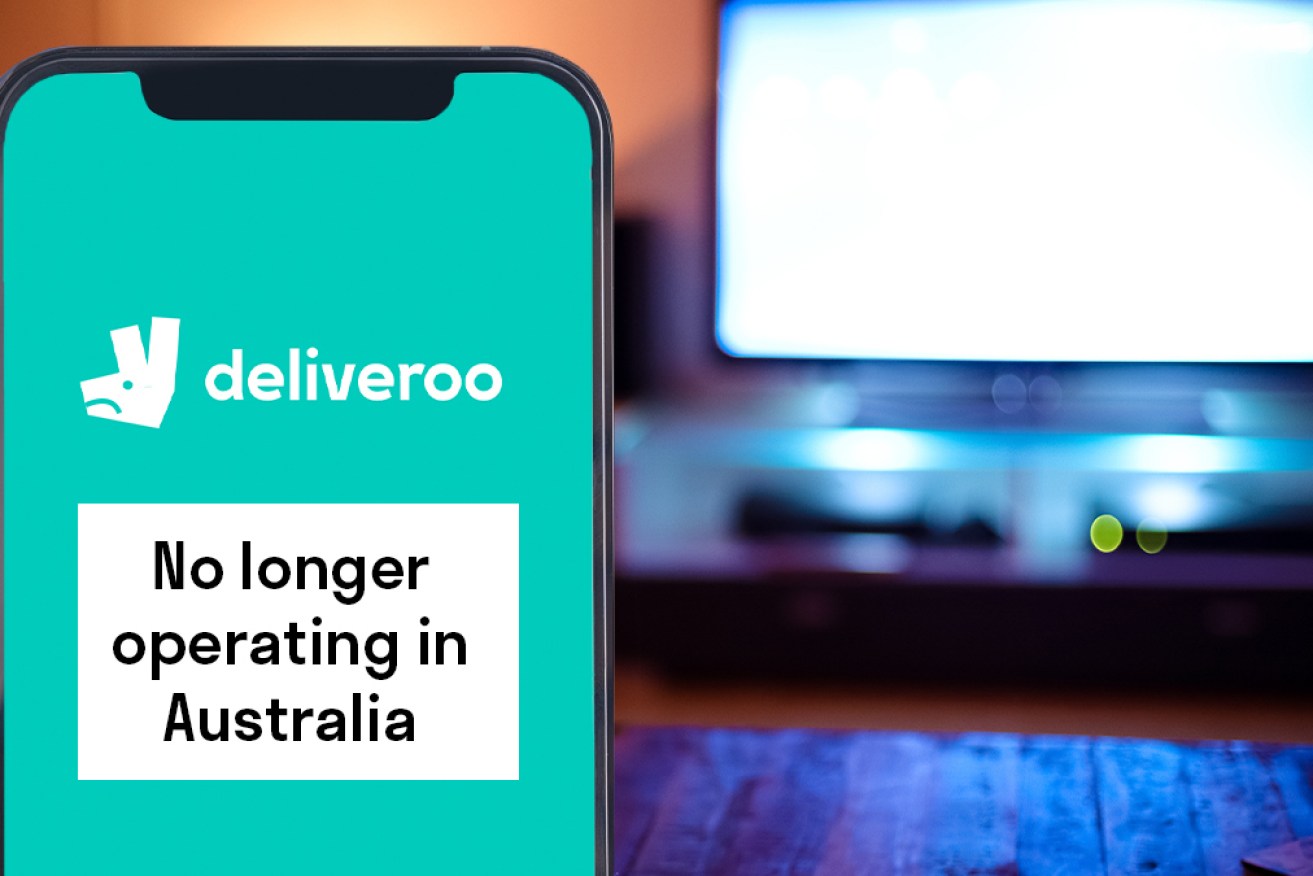Wheels fall off the gig economy for Deliveroo


Customers and riders got an unwelcome surprise when Deliveroo suddenly ceased Australian operations. Photo: TND/Getty/Deliveroo
The spectacular collapse of Deliveroo in Australia this week may have been a shock for customers and drivers, but the writing was on the wall for the company – which had already quit Germany and Spain, associate professor at the University of Sydney Business School, Angela Knox, said.
“Australia has a much smaller population than other countries where Deliveroo has withdrawn, so I’m not surprised that … they’ve made that decision,” Dr Knox said.
“If they can’t survive in an economy like Germany, then there’s even less chance they’re going to survive in a much smaller population like Australia, where there is just as much competition from other equivalent providers.”
Deliveroo, a UK-based company which became one of Australia’s first food delivery services when it launched in 2015, revealed it had been placed in voluntary administration and announced an immediate shut down on Wednesday.
Deliveroo appointed administrators from KordaMentha to wind up the company, with customers advised they could access their accounts and download information for six months before their accounts are closed.
Voly, a smaller Sydney-based grocery delivery startup, also announced its closure on Friday.
Voly co-founder Thibault Henry blamed unstable geopolitics and high inflation as barriers to profitability.
No money in delivery
Caleb Goods, senior lecturer at the University of Western Australia Business School, told The New Daily small profit margins mean food delivery services have been “primarily operating at a loss”.
Deliveroo posted a pretax loss of £147.3 million ($260 million) for the first half of 2022, while the year’s third quarter saw Doordash report a net loss of $US296 million ($441 million) and Uber (which encompasses UberEats) report a net loss of $US1.2 billion ($1.7 billion).
The struggle to make a profit largely stems from the fact companies are subsidising deliveries to keep costs low for customers.
“Customers aren’t actually paying the full price for the delivery of their product,” Dr Goods said.
While many companies were originally flush with cheap venture capital, most countries have hit hard economic times, meaning platforms can no longer rely on money being pumped into them by investors as cash and debt becomes more expensive, he said.
“If you become … the dominant player, then you can become profitable,” he said.
“But [the food delivery market] is super competitive, because it’s easy to enter … and we’ve seen new entrants in Australia in the last few years.
“So it’s still uncertain if their business model can actually survive over the longer term.”
Raising delivery charges would be the biggest chance for survival for many food delivery platforms, but this will be a tough sell to people used to spending an average of $3-5 to enjoy their favourite restaurant meals at home.
While price rises might incite some grumbling from customers, especially as overall the cost of living goes up, it would also be a boon for the thousands of workers that unions say are being exploited by the gig economy.
Gig workers ‘devastated’
Deliveroo leaves behind 15,000 local riders, who the Transport Workers Union national secretary Michael Kaine said were “devastated” over the sudden loss of their jobs.
“The TWU has sought urgent consultation with administrators on what entitlements might be clawed back for food delivery riders who stand to lose their jobs in the blink of an eye,” Mr Kaine said on Wednesday.
“These are workers that have been ripped off minimum wage and other rights, and put under deadly pressure to prioritise speed over safety when delivering food.”
Tweet from @AdamBandt
The gig economy, particularly for food delivery and rideshare services, has proven controversial as companies face accusations of exploiting workers by categorising them as independent contractors rather than employees.
Independent contractors have no access to benefits such as sick leave, minimum wages or union representation.
But things are improving for workers who face unstable wages and little job security.
The TWU reached a historic agreement with Uber this year, in which the latter agreed to give workers minimum and enforceable earnings, a mechanism to resolve disputes, and the right to set up and join a union.
The agreement is similar to the deal the TWU struck with rival rideshare and food delivery company Doordash in May.
The government has also committed to introducing legislation in 2023 to allow the Fair Work Commission to set minimum pay and conditions for gig economy workers.
Tweet from @CaraMia200
The prospect of extra costs and responsibilities could put more pressure on an industry already struggling to make money.
But Dr Knox said if paying people decent wages and providing some security isn’t sustainable, then the whole existence of these rideshare and food delivery services should be questioned.
Rideshare and delivery services can serve as a side-hustle for some, but for international students or recent immigrants, these jobs can be their main income.
“If people can’t be paid minimum wages and receive basic entitlements, I think that we do need to question whether that kind of business is something that we should be supporting and allowing,” Dr Knox said.
“If it’s not sustainable, then it shouldn’t be happening.”








